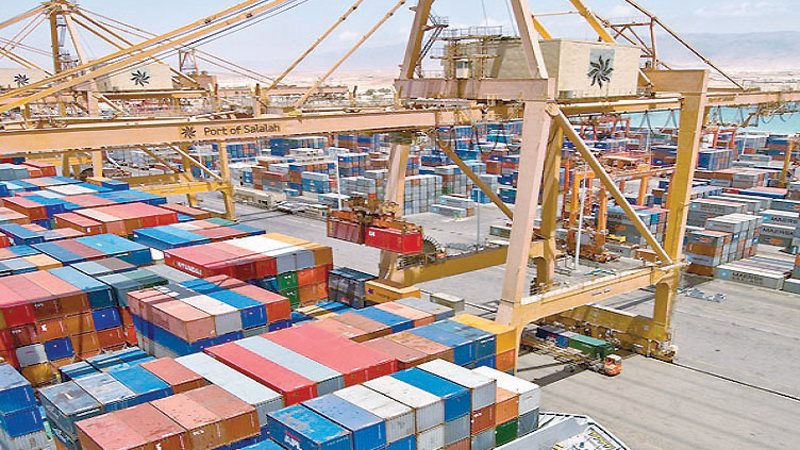


Conrad Prabhu -
Muscat, Nov 12 -
The Sultanate’s accession to the TIR Convention, following its ratification by Royal Decree last month, will help facilitate and expedite multimodal trade flows across international borders, according to a high-level expert of the Oman Logistics Centre (OLC), an outfit of ASYAD — the nation’s flagship logistics group.
Tapio Naula (pictured), Vice- President (Trade Facilitation) at Oman Logistics Centre, said the move enables Oman’s entry into a grouping of more than 70 countries that are signatories to the TIR Convention — a globally applicable international customs transit and guarantee system.
Formally known as The Convention on International Transport of Goods Under Cover of TIR Carnets (TIR Convention), it enables goods to be shipped from a country of origin, through transit countries, to a country of destination in sealed load compartments that are controlled by customs via a multilateral, mutually recognised system. It is the easiest, safest and most reliable way to move goods across multiple international borders, saving time and money for transport operators and customs authorities.
Explaining the beneficial implications of TIR membership for Oman, Naula said: “First of all, trucks will need to spend a lot less time at border crossing points, so there are direct benefits there. Trucks units can travel across the member countries of the TIR Convention more or less freely, with minimum checks only, and no inspections.”
Equally, the Convention will facilitate customs guarantees, said Naula. “Up until now it was necessary to place guarantees with the customs (of overseas countries as safeguards if something adverse happened to the cargo). Guarantees must be paid whenever the shipment crosses an international border. This chain of guarantees can be very cumbersome and costly. But TIR has only one guarantee — it’s a worldwide guarantee and that’s the beauty of the whole convention; it expedites the movement of goods quite a lot. But it’s also multimodal — it can apply to air and sea transport as well.”
Naula welcomed the support extended by the International Road Transport Union (IRU) — which manages the TIR Convention — in enabling Oman’s accession to the multilateral treaty.
“The Convention is just one example of the many multilateral legal instruments that can be implemented in Oman,” the expert on trade facilitation explained. “There are some instruments related directly to road transport, such as the CMR Convention, and this is one of the opportunities that is available for Oman to implement in the future. And IRU is a very good partner for us, because they have worked with countries to implement these conventions, and those conventions facilitate trade — saving time and cost in transport and trade.”
The Oman Logistics Centre, said Naula, is working very hard in the implementation of the World Trade Organisation’s (WTO) trade facilitation agreement. The Sultanate is a member country of the WTO, he noted.
The agreement will help facilitate trade from the standpoint of speedier customs clearance, he pointed out. “How can we avoid having goods waiting for some documentation or inspection? How can we streamline all these activities, so legitimate trade can flow freely without disturbance or inspection? One of the things we are trying to put in place control procedures, which are vital for any country to safeguard its vital interests like tax collection, product safety, and so on. These control procedures can be done before the arrival of the goods or after the release of the goods, with minimum delays at border crossing points.”
Measures implemented by the government, based on the recommendations of the Oman Logistics Centre, are already having a positive impact on the ground, according to Naula. “One of the initiatives that we began about a year ago is on preclearance — where goods can be customs cleared even before their arrival of the goods. Already 18 per cent of sea shipments are pre-customs cleared, which means they don’t have to wait when arriving at the port. It has been estimated by the World Bank that a saving of one day in goods transport can increase trade by one per cent. So if we can cut 2-3 days on the average dwell time at ports, we may be able to increase trade by 2-3 per cent, which will be beneficial for the country.”
Oman Observer is now on the WhatsApp channel. Click here



